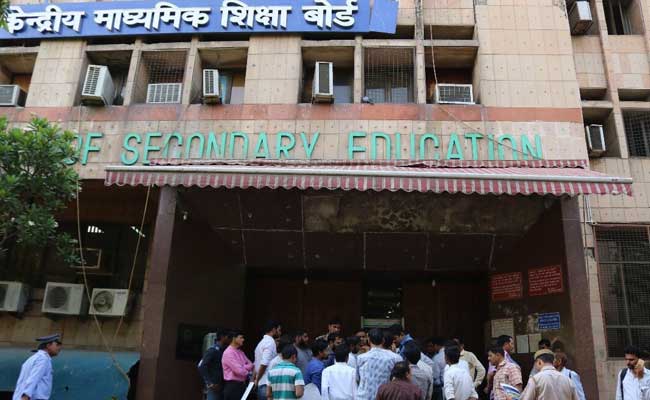
The government will not approach the Supreme Court against a high court verdict forcing the Central Board of Secondary Education (CBSE) to continue its marks moderation policy, officials said today, a day after Union Education Minister Prakash Javadekar assured 11 lakh students who appeared for the exam that the results would be declared on time. The decision comes after legal advice from government lawyers which said CBSE should not challenge the High Court order and the policy could be implemented next year, sources said. Currently, the timing of the results is crucial for school students who need to apply for college admissions in Delhi, and elsewhere.
Here are the 10 points on this story:
"The results will be on time... CBSE will make the announcement soon. The students should not worry. Justice will be done to everyone," Mr Javadekar said on Thursday. The CBSE was expected to declare the Class 12 results this week.
The uncertainty over the CBSE Class 12 results owes its origin to flaws in the system of moderating marks that were initially meant to bring about uniformity in the evaluation of exam papers. So if students in a particular region, or year, did not do well in a particular paper, they were given extra marks. This was a key reason for the outrageously high cut-off marks for admission to Delhi University colleges last year.
An analysis by the CBSE, however, indicated there were problems in executing this policy and decided to stop the practice. The number of toppers with over 90 per cent had multiplied from 400 to 14,000 over the last decade.
Many state boards too were found to have tweaked the formula and were a little too generous in moderating the marks to give their students an advantage.
Moderation of marks helped students who didn't score well in the exam; many of them who originally scored less than the minimum marks, 33 per cent, also stood to benefit.
But last month's sudden decision by the CBSE to scrap the moderation policy ran into trouble this week. The Delhi High Court ruled that the CBSE could not change the goalposts once the examination process had started and told CBSE to continue moderating the marks this year too.
Technically, this wasn't such a difficult task for the CBSE to moderate the marks but there was one big complication. When the CBSE scrapped the moderation policy, it didn't do it alone and had persuaded many of the 32-odd state education boards to do likewise.
About 10 school examination boards have already declared their class 12 results, partially or completely. This list includes states such as Punjab and Haryana where the pass percentage dropped sharply after the education boards stopped moderating marks.
Students of schools affiliated to state education boards that did not moderate the marks this year would be put at a disadvantage if the CBSE - the prime mover of the plan - tweaks the marks of its own. It is too late for state boards to change the marks already declared, or pass students declared failed.
CBSE officials had earlier indicated an appeal to the Supreme Court against the high court verdict is the most painless way out of the quagmire, particularly in light of concerns that CBSE students could miss out higher educational opportunities in some states where local education boards have already declared the results.

